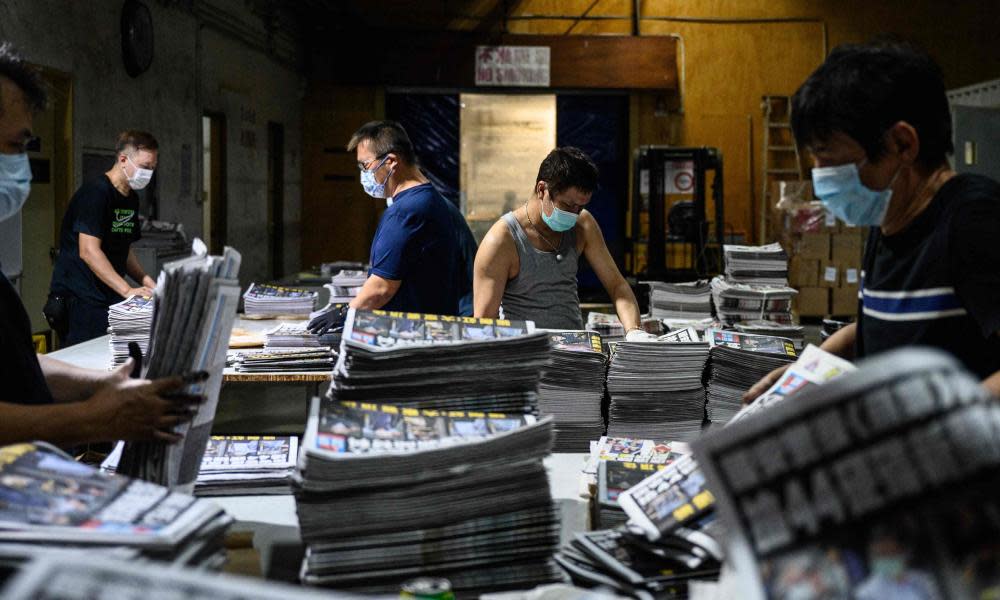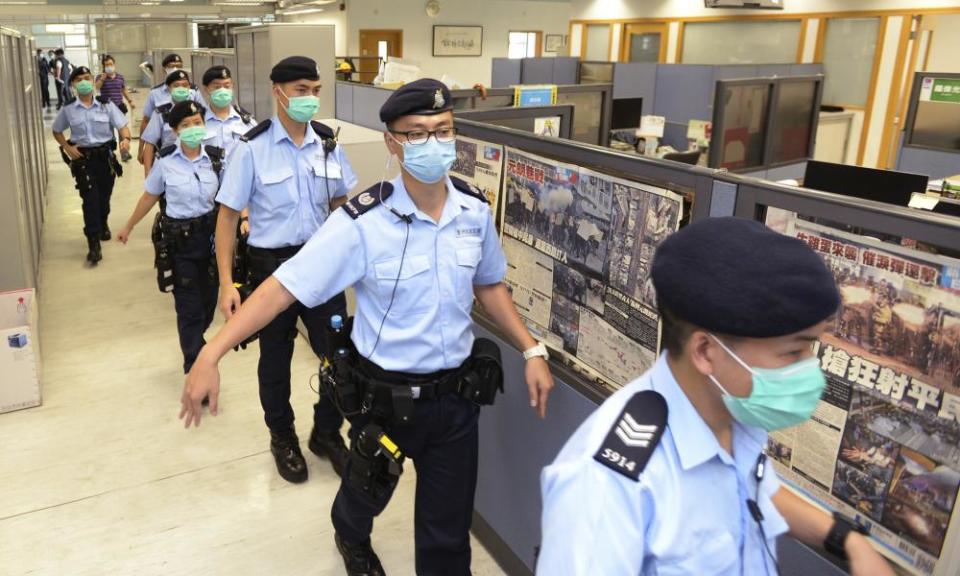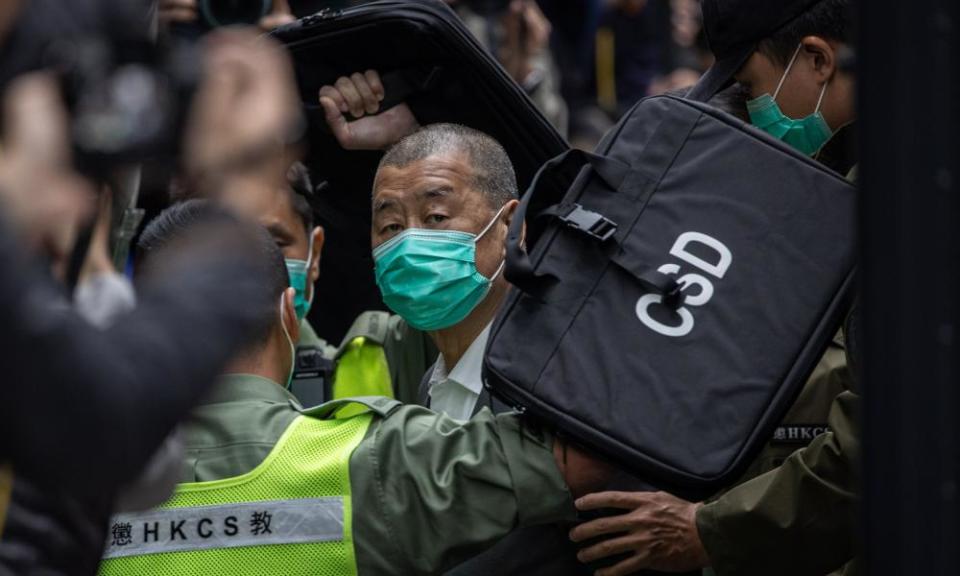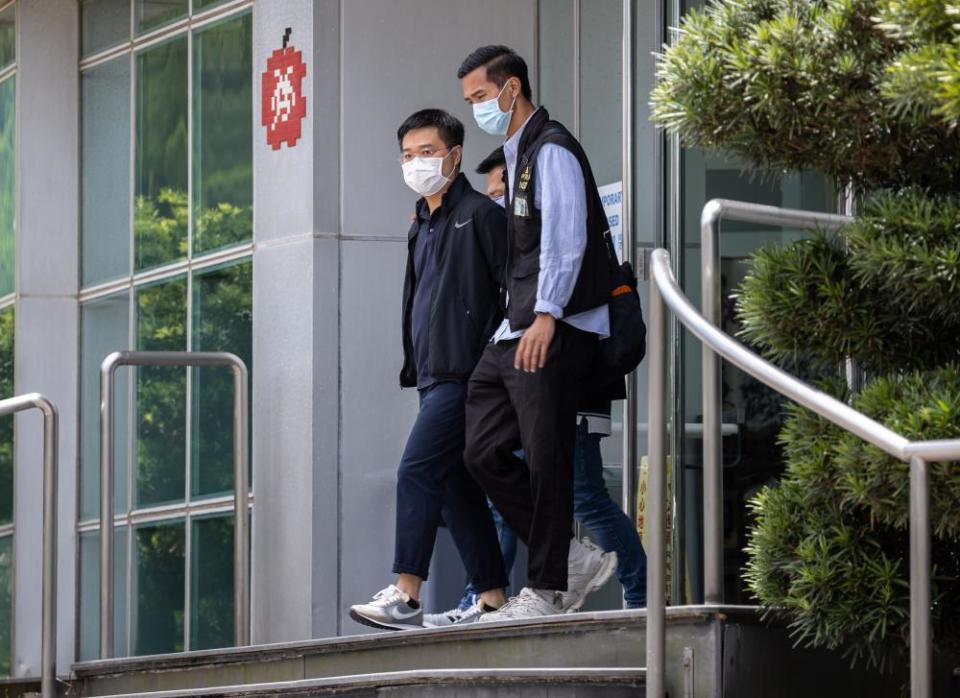Timeline of events leading to the closure of Hong Kong’s Apple Daily

June 2019 The first protests begin in Hong Kong, with millions of people taking to the street in protest against a proposed extradition bill, which critics fear will allow people to be sent to mainland China for trial.
8 July The pro-democracy activist and media mogul Jimmy Lai travels to the US and meets the vice-president, Mike Pence, and the secretary of state, Mike Pompeo, to discuss the proposed extradition bill. China’s foreign ministry releases a statement accusing “national scum and Hong Kong sinners” of acting as political tools for foreign forces.
1 June 2020 Apple Daily launches an English-language edition, offering news and opinion articles online. Over the next six months it closely follows the protests, largely supportive of protesters and criticising police brutality.
30 June Beijing imposes the national security law (NSL) on Hong Kong, outlawing acts of sedition, secession, foreign collusion, and terrorism. Lai tells media the Hong Kong he once knew is dead.
10 August Lai and senior Next Digital media executives are arrested at their homes in the early morning, with Lai accused of colluding with foreign forces. The Apple Daily newsroom is raided for the first time: reporters livestream the event and show police officers rifling through desks. Midway through the raid a handcuffed Lai is marched through the newsroom. He is later released on bail.

15 August Lai tells the Guardian his arrest under the NSL is authorities wanting to “show the teeth” of the law, but they hadn’t bitten yet. He says media must push on.
3 December Lai and two Next Digital executives are charged with fraud, accused of breaching land-lease terms by misusing Next Digital’s office space in Tseung Kwan O for other purposes. They are denied bail.
11 December Lai is charged with foreign collusion under the NSL. He is later released on bail under strict conditions amounting to house arrest but prosecutors succeed in having the decision overturned after strong criticism from Beijing and government figures, and he is returned to jail on remand.
29 December Lai resigns as chair and executive director of Next Digital media, “in order to spend more time dealing with his personal affairs”, the company announces.

13 April 2021 Days before his sentencing for protest-related charges, Lai writes to Apple Daily staff from prison, telling them to take care of themselves but to “stand tall”. “Freedom of speech is a dangerous job,” he wrote. “Please be careful not to take risks. Your own safety is very important.”
15 April Apple Daily is one of the only daily papers not to run government advertisements for national security education day. Its coverage appears to prompt an angry rebuke from the police commissioner, Chris Tang. Tang accuses an unspecified paper of inciting hatred, and warns of national security investigations. Pro-Beijing outlets call for Apple Daily to be shut down.
this explains why @appledaily_hk will be missed by many and what it means for #HongKong. (taken on April 15, 2021 when all except one got national security education ad on front pages)
Apple Daily to Shut Down Following Hong Kong Arrests https://t.co/BycDjwvunJ @bpolitics pic.twitter.com/3YPyXpNeaM— Fion Li (@fion_li) June 23, 2021
15 May Authorities freeze Lai’s assets, and Next Digital halts trading in the company’s shares. Lai owns 71% of Next Digital Media and is a controlling shareholder. By now Lai is serving prison sentences over protest-related charges, and is facing three national security charges.

17 June National security police arrest the editor-in-chief, Ryan Law, and four other directors of Apple Daily in early morning raids over dozens of articles alleged to be part of a conspiracy to collude with foreign forces. They raid the newsroom for a second time, with a warrant to seize dozens of computers. Staff return to work, using their phones to build the next day’s paper, and livestream the printing presses.
18 June More than half a million copies of the paper are bought by Hongkongers in support, a more than fivefold increase on usual sales. Police charge Law and the chief executive, Cheung Kim-hung, and announce the prosecution of three companies. Assets totalling HK$18m (£1.66m) and accounts containing more than $500m are frozen.

22 June Next Digital Media says the paper will probably have to close if assets are not released to allow it to pay staff. The finance news, English-language service, and nightly online broadcast are shut down. The Hong Kong leader, Carrie Lam, defends the operation and rejects international criticism that it was an attack on press freedom. She dismisses calls for the assets to be released and takes no questions from Apple Daily reporters at the press conference.
23 June olice arrest Apple Daily’s chief opinion writer, who publishes under the name Li Ping, on suspicion of foreign collusion relating to the published articles at the heart of the operation. That afternoon, Apple Daily and Next Media announce the paper will close, with its final edition on Thursday 23 June. The online edition will cease at midnight. “Farewell and take care,” it says.

 Yahoo Movies
Yahoo Movies 
